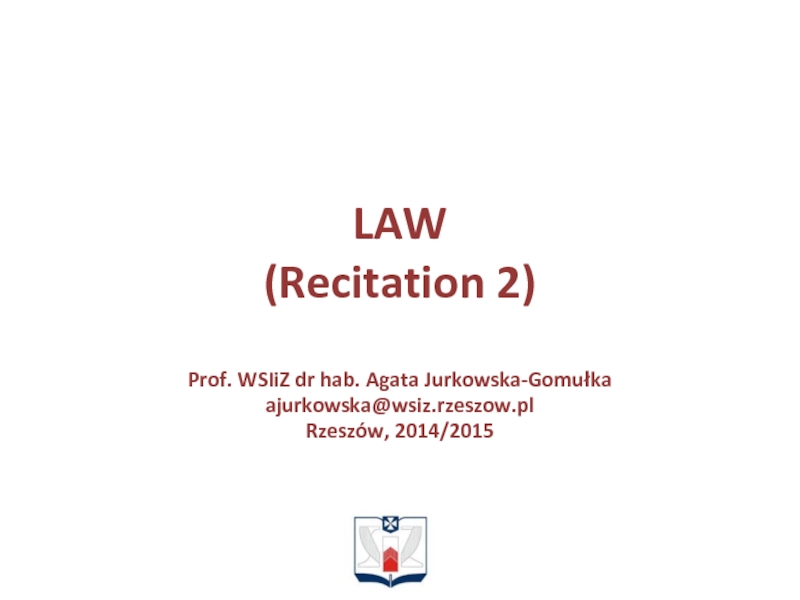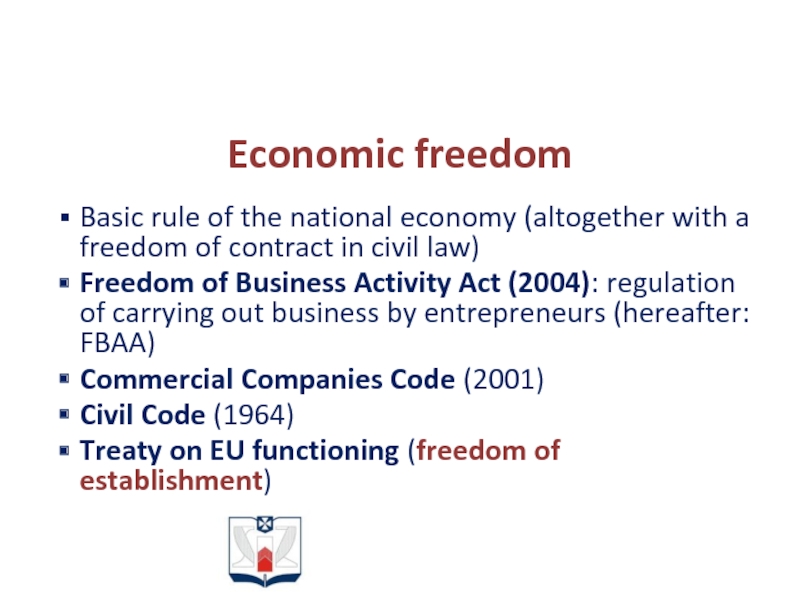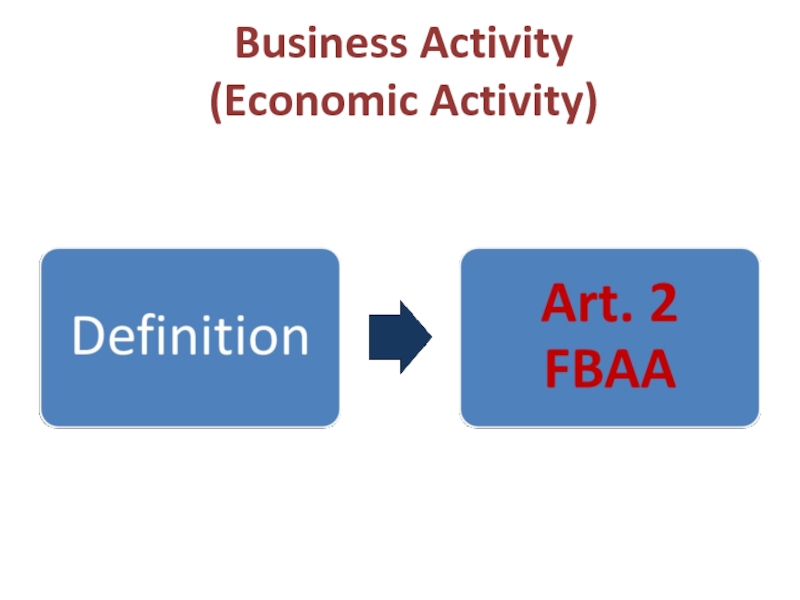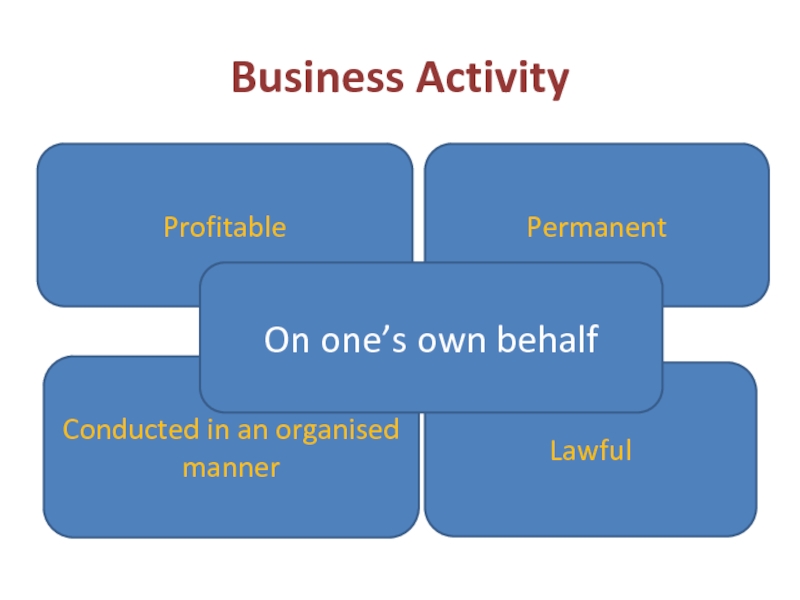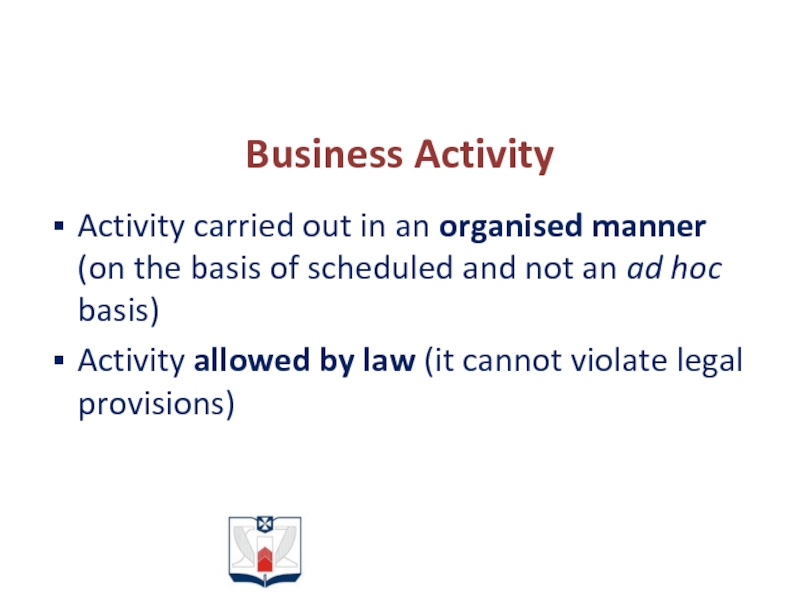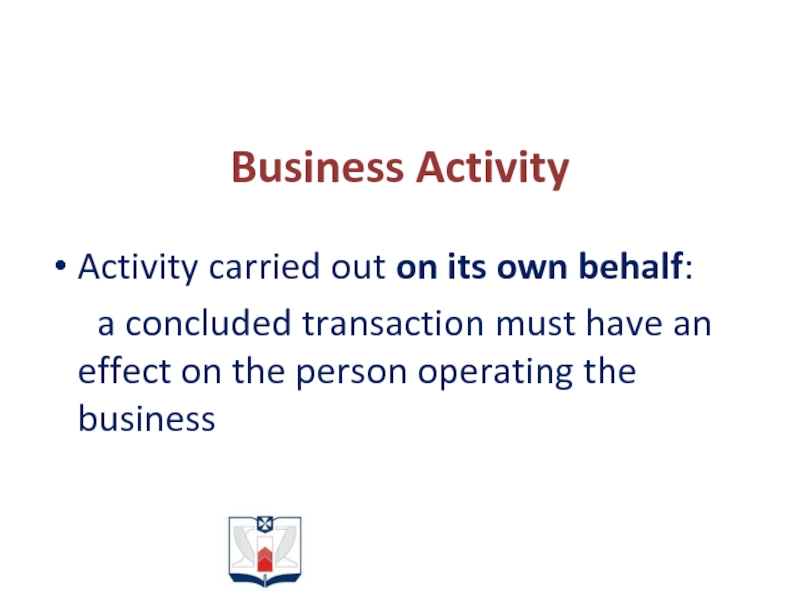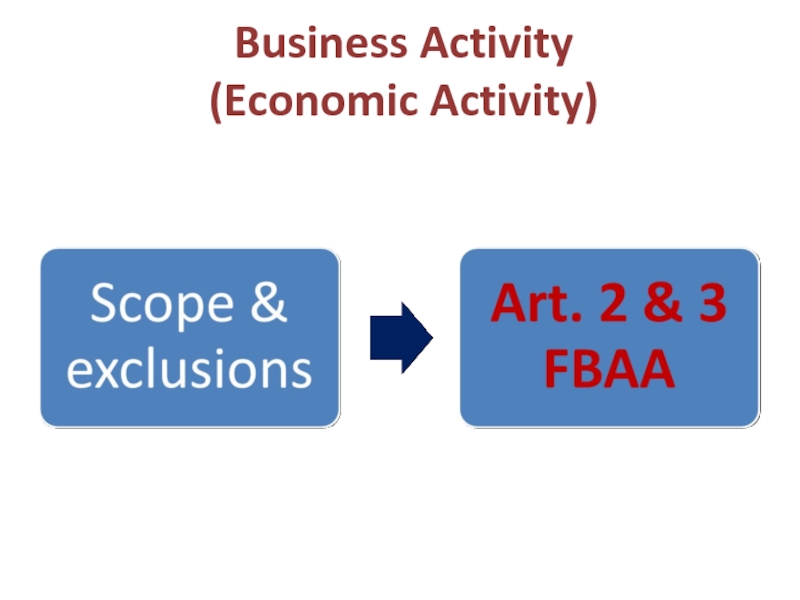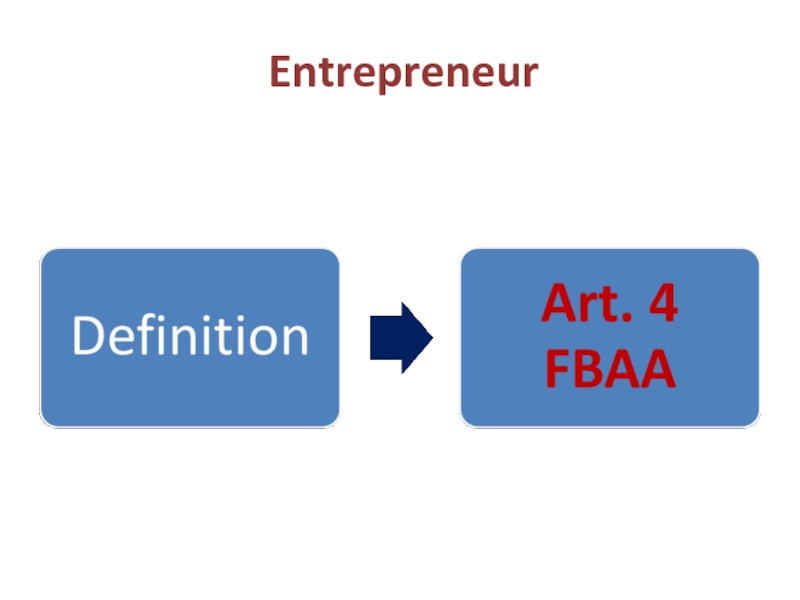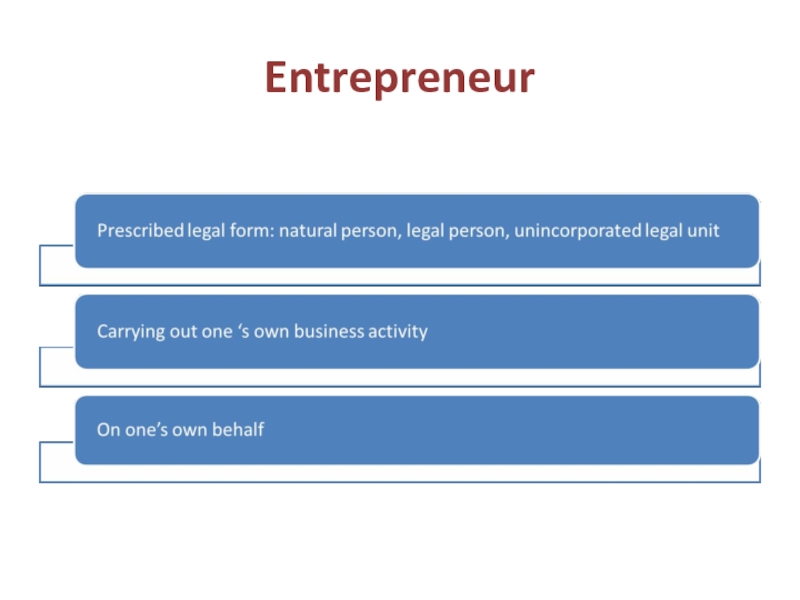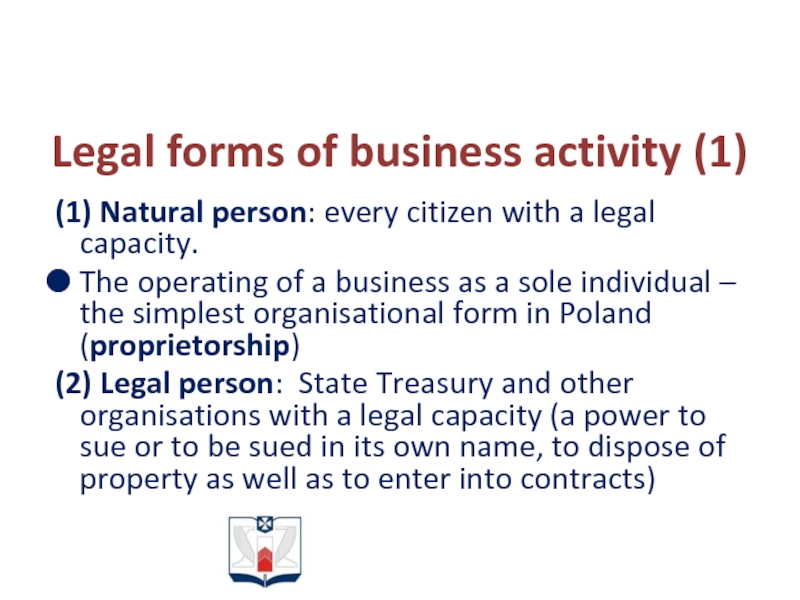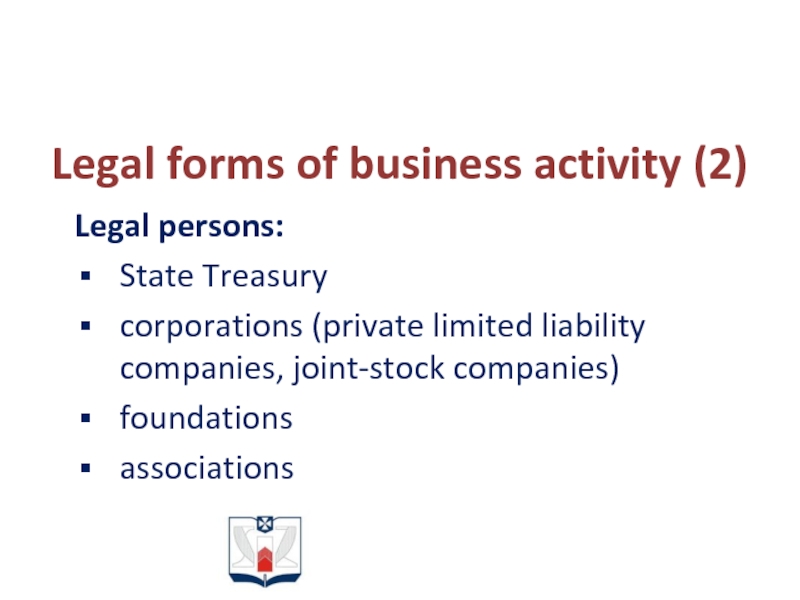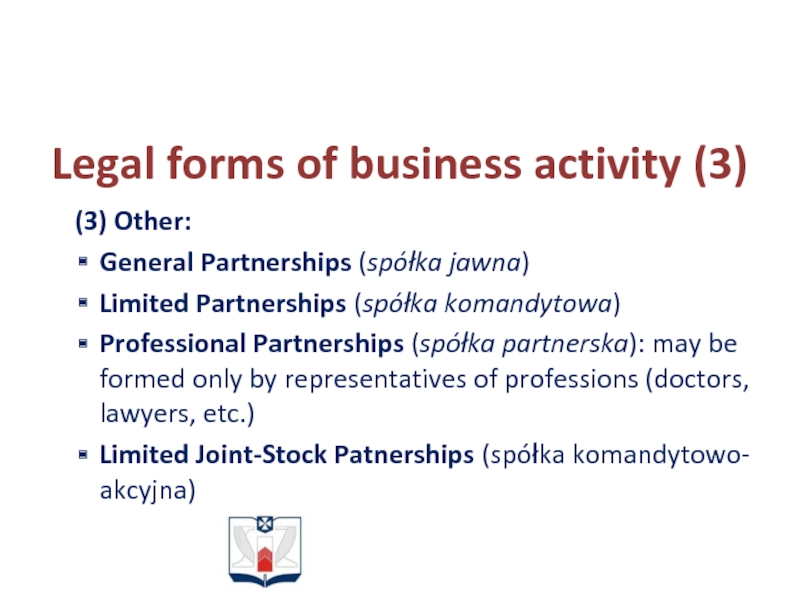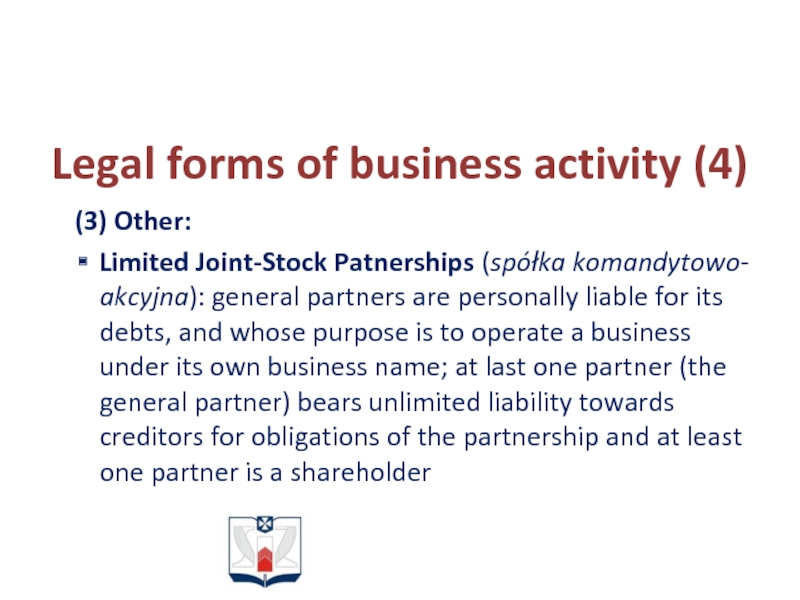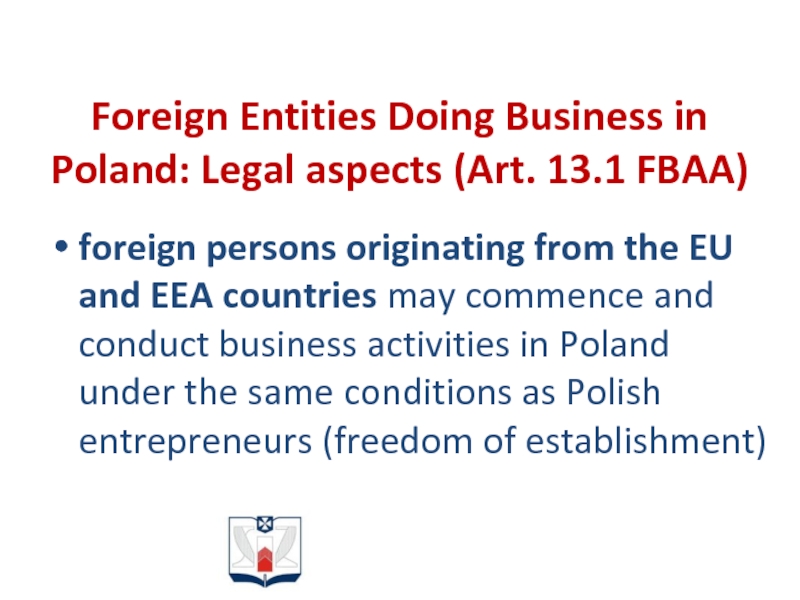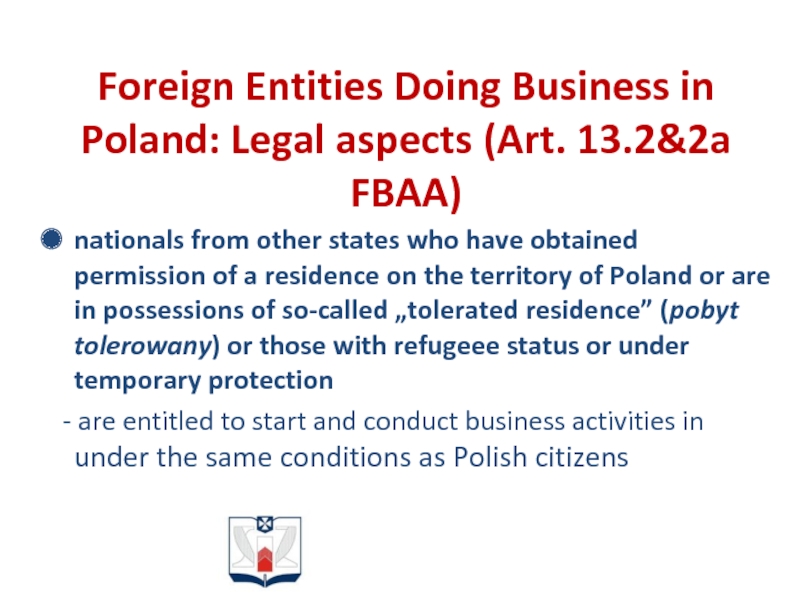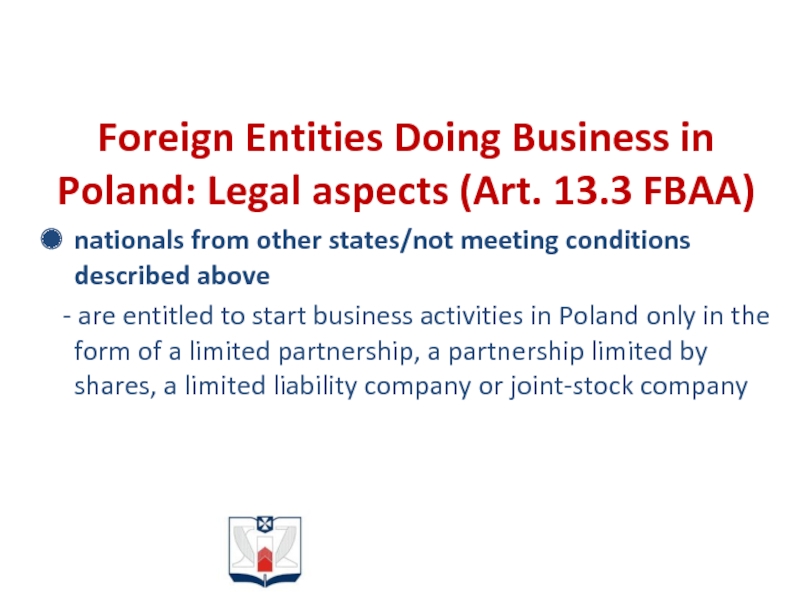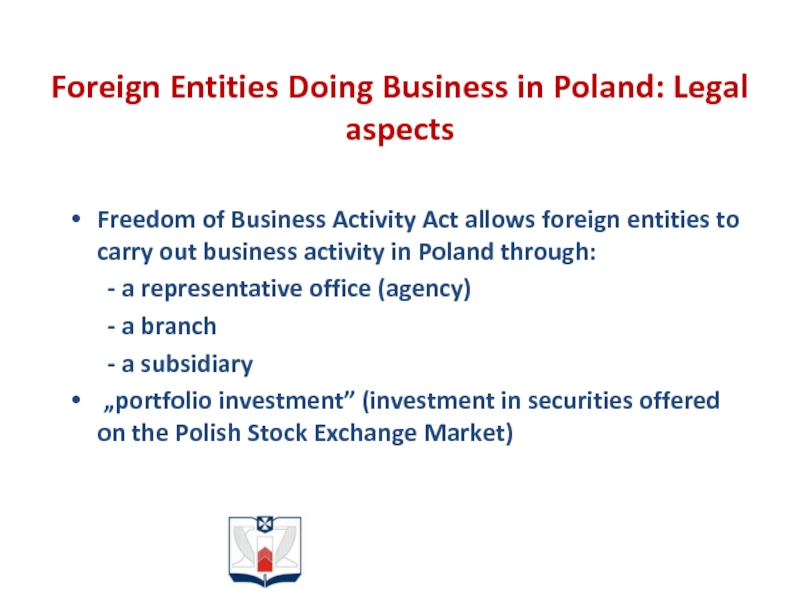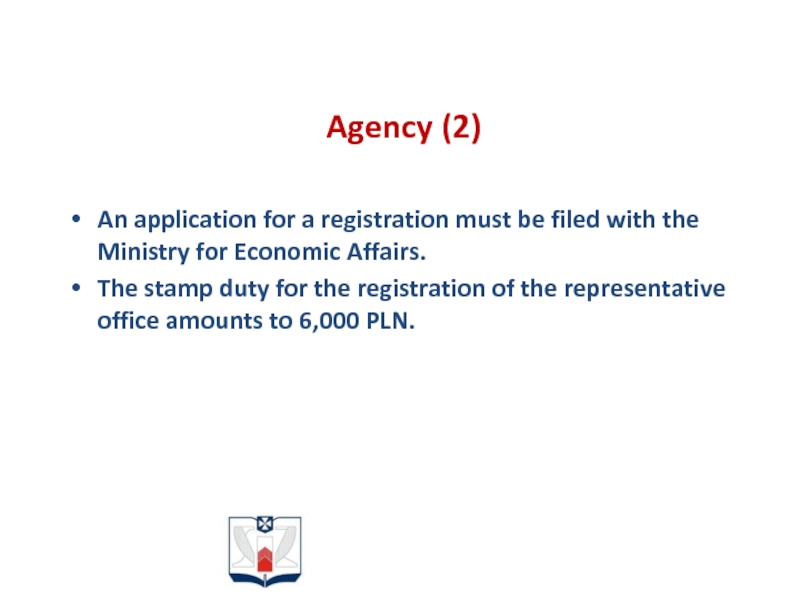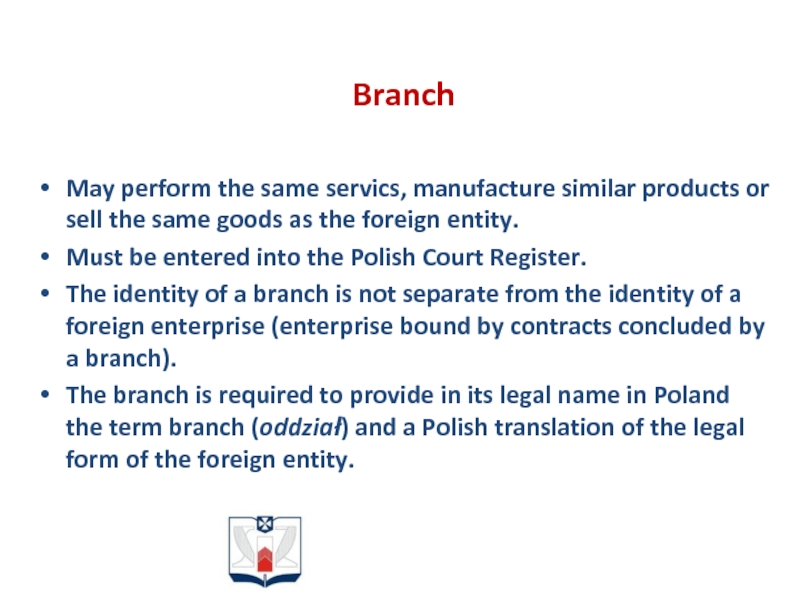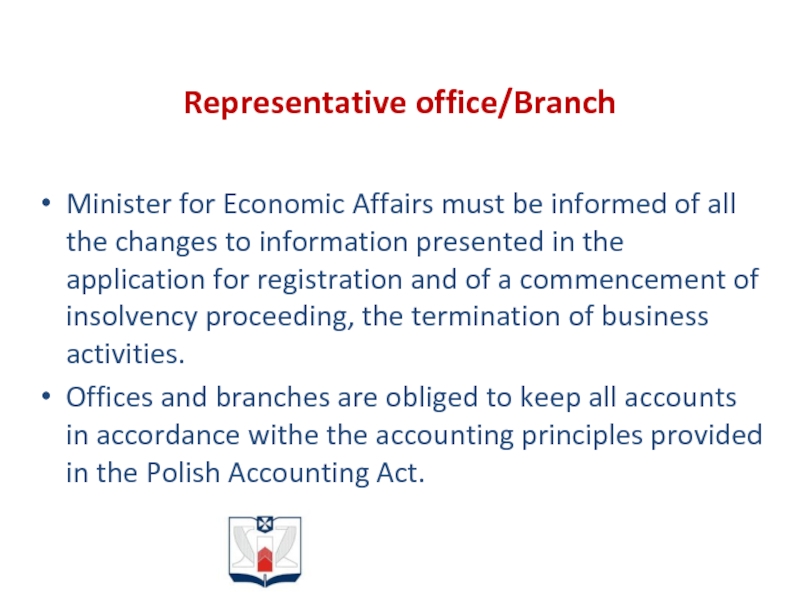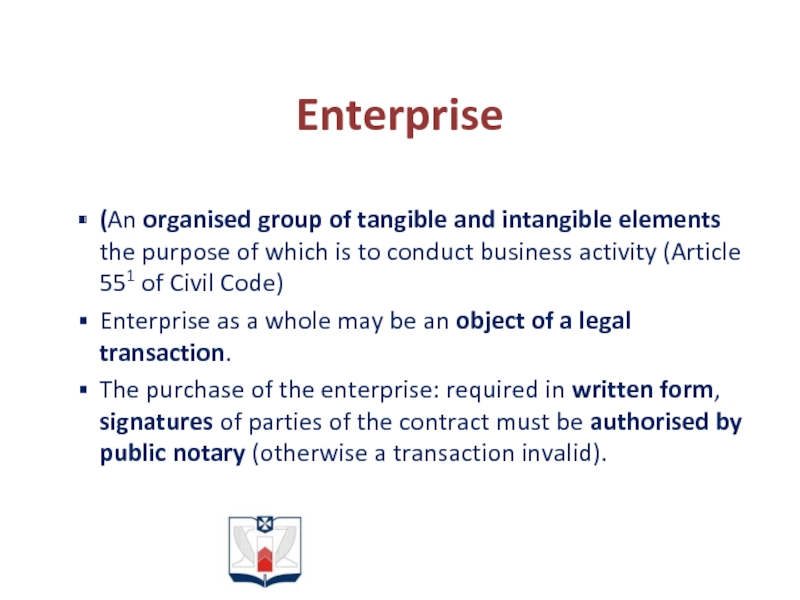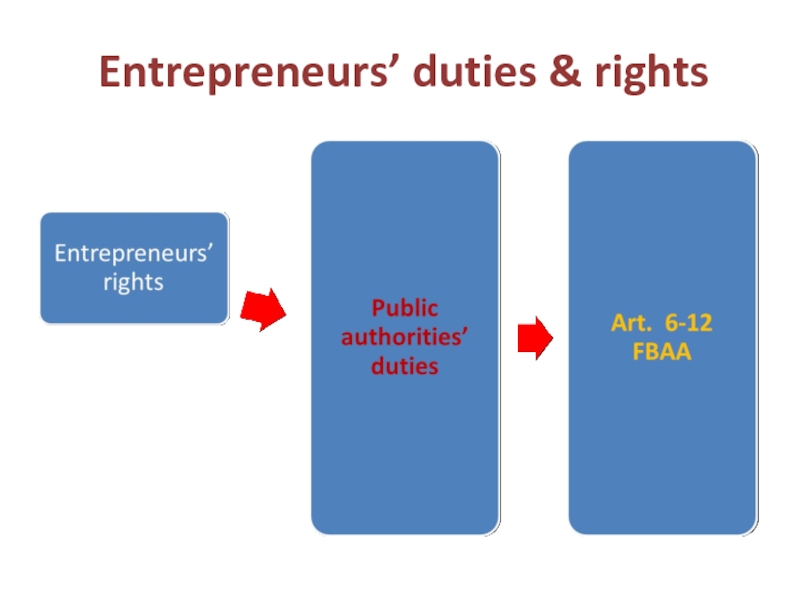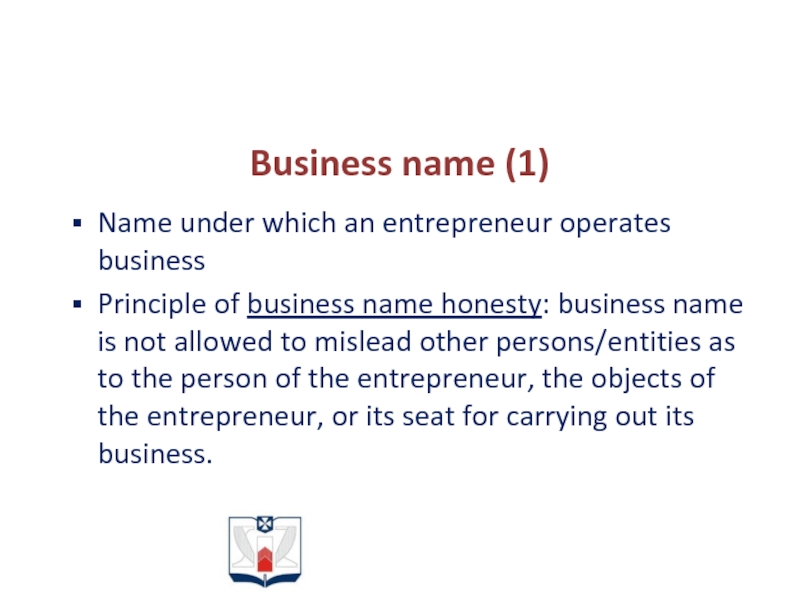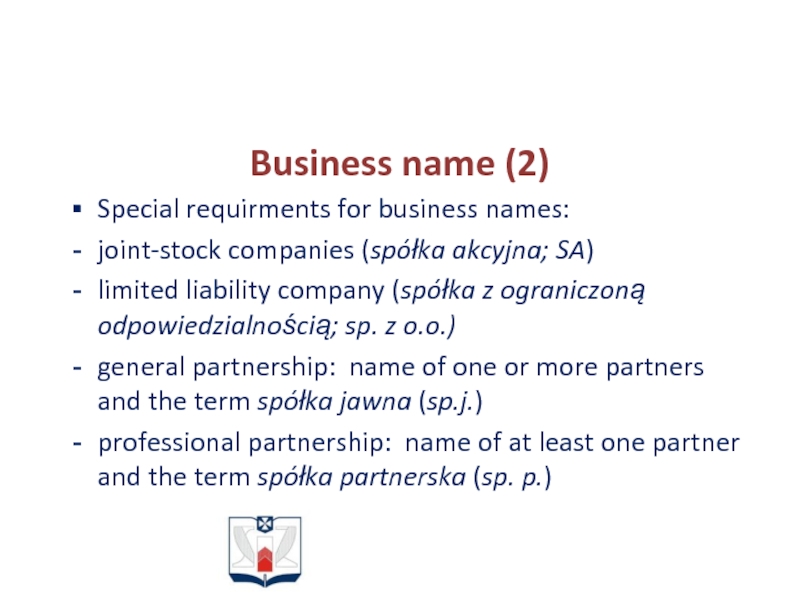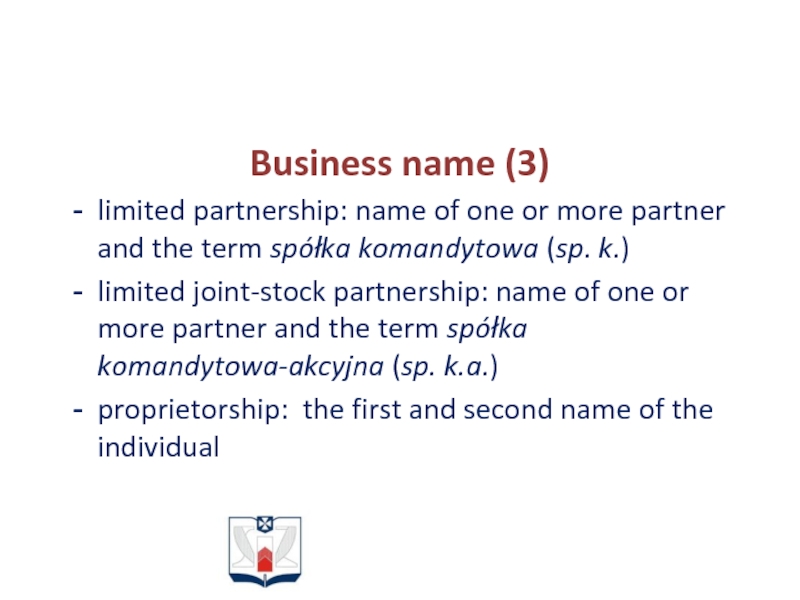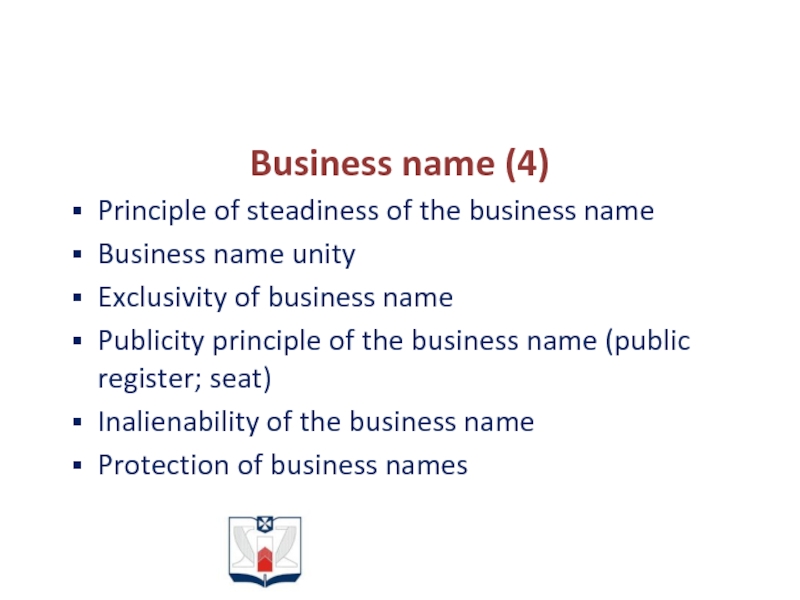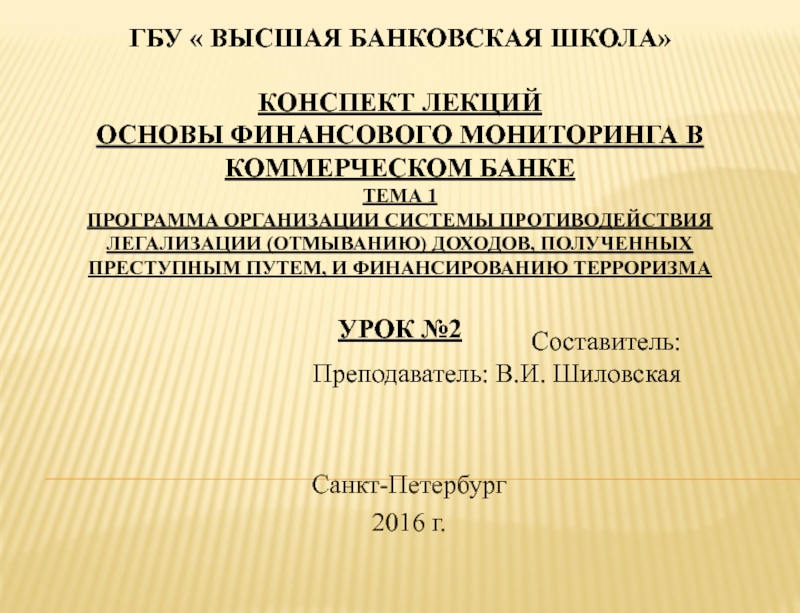- Главная
- Разное
- Дизайн
- Бизнес и предпринимательство
- Аналитика
- Образование
- Развлечения
- Красота и здоровье
- Финансы
- Государство
- Путешествия
- Спорт
- Недвижимость
- Армия
- Графика
- Культурология
- Еда и кулинария
- Лингвистика
- Английский язык
- Астрономия
- Алгебра
- Биология
- География
- Детские презентации
- Информатика
- История
- Литература
- Маркетинг
- Математика
- Медицина
- Менеджмент
- Музыка
- МХК
- Немецкий язык
- ОБЖ
- Обществознание
- Окружающий мир
- Педагогика
- Русский язык
- Технология
- Физика
- Философия
- Химия
- Шаблоны, картинки для презентаций
- Экология
- Экономика
- Юриспруденция
Law (Recitation 2). Economic freedom презентация
Содержание
- 1. Law (Recitation 2). Economic freedom
- 2. Economic freedom Basic rule of the national
- 3. Business Activity (Economic Activity)
- 4. Business Activity Profitable Conducted in
- 5. Business Activity Activity for profit (a key
- 6. Business Activity Activity carried out in an
- 7. Business Activity Activity carried out on its
- 8. Business Activity (Economic Activity)
- 9. Business Activity – scope Manufacturing, construction, trade
- 10. Entrepreneur
- 11. Entrepreneur
- 12. Legal forms of business activity (1) (1)
- 13. Legal forms of business activity (2) Legal
- 14. Legal forms of business activity (3) (3)
- 15. Legal forms of business activity (4) (3)
- 16. Foreign Entities Doing Business in Poland: Legal
- 17. Foreign Entities Doing Business in Poland: Legal
- 18. Foreign Entities Doing Business in Poland: Legal
- 19. Foreign Entities Doing Business in Poland: Legal
- 20. Agency (1) the simplest fom of involvement
- 21. Agency (2) An application for a registration
- 22. Branch May perform the same servics,
- 23. Representative office/Branch Minister for Economic Affairs must
- 24. Subsidiary An entity whose identity is separate
- 25. Enterprise (An organised group of tangible and
- 26. Entrepreneurs’ duties & rights
- 27. Business name (1) Name under which an
- 28. Business name (2) Special requirments for business
- 29. Business name (3) limited partnership: name of
- 30. Business name (4) Principle of steadiness of
Слайд 1LAW
(Recitation 2)
Prof. WSIiZ dr hab. Agata Jurkowska-Gomułka
ajurkowska@wsiz.rzeszow.pl
Rzeszów, 2014/2015
Слайд 2Economic freedom
Basic rule of the national economy (altogether with a freedom
of contract in civil law)
Freedom of Business Activity Act (2004): regulation of carrying out business by entrepreneurs (hereafter: FBAA)
Commercial Companies Code (2001)
Civil Code (1964)
Treaty on EU functioning (freedom of establishment)
Freedom of Business Activity Act (2004): regulation of carrying out business by entrepreneurs (hereafter: FBAA)
Commercial Companies Code (2001)
Civil Code (1964)
Treaty on EU functioning (freedom of establishment)
Слайд 4Business Activity
Profitable
Conducted in an organised manner
Permanent
Lawful
On one’s own behalf
Слайд 5Business Activity
Activity for profit (a key element is an intention to
get a profit; it does not matter if an operating business suffers only losses)
Activity carried out continually (permanently): an intention of an entreprenur is to conclude a number of similar transactions within a certain period of time, occasional transactions not sufficient
Activity carried out continually (permanently): an intention of an entreprenur is to conclude a number of similar transactions within a certain period of time, occasional transactions not sufficient
Слайд 6Business Activity
Activity carried out in an organised manner (on the basis
of scheduled and not an ad hoc basis)
Activity allowed by law (it cannot violate legal provisions)
Activity allowed by law (it cannot violate legal provisions)
Слайд 7Business Activity
Activity carried out on its own behalf:
a concluded
transaction must have an effect on the person operating the business
Слайд 9Business Activity – scope
Manufacturing, construction, trade and services, as well as
prospecting, recognising and extracting minerals from deposits
Professionals (carrying out activities on a free-lance-basis) are also carrying out business activity (lawyers, doctors, artists, writers, tax advisers, auditors)
Limitation of business activity definition - excluded: manufacturing activities in agriculture with a respect to crop and vegetable cultivation, breeding of animals, gardening, forestry, fishing
Professionals (carrying out activities on a free-lance-basis) are also carrying out business activity (lawyers, doctors, artists, writers, tax advisers, auditors)
Limitation of business activity definition - excluded: manufacturing activities in agriculture with a respect to crop and vegetable cultivation, breeding of animals, gardening, forestry, fishing
Слайд 12Legal forms of business activity (1)
(1) Natural person: every citizen with
a legal capacity.
The operating of a business as a sole individual – the simplest organisational form in Poland (proprietorship)
(2) Legal person: State Treasury and other organisations with a legal capacity (a power to sue or to be sued in its own name, to dispose of property as well as to enter into contracts)
The operating of a business as a sole individual – the simplest organisational form in Poland (proprietorship)
(2) Legal person: State Treasury and other organisations with a legal capacity (a power to sue or to be sued in its own name, to dispose of property as well as to enter into contracts)
Слайд 13Legal forms of business activity (2)
Legal persons:
State Treasury
corporations (private limited liability
companies, joint-stock companies)
foundations
associations
foundations
associations
Слайд 14Legal forms of business activity (3)
(3) Other:
General Partnerships (spółka jawna)
Limited Partnerships
(spółka komandytowa)
Professional Partnerships (spółka partnerska): may be formed only by representatives of professions (doctors, lawyers, etc.)
Limited Joint-Stock Patnerships (spółka komandytowo- akcyjna)
Professional Partnerships (spółka partnerska): may be formed only by representatives of professions (doctors, lawyers, etc.)
Limited Joint-Stock Patnerships (spółka komandytowo- akcyjna)
Слайд 15Legal forms of business activity (4)
(3) Other:
Limited Joint-Stock Patnerships (spółka komandytowo-
akcyjna): general partners are personally liable for its debts, and whose purpose is to operate a business under its own business name; at last one partner (the general partner) bears unlimited liability towards creditors for obligations of the partnership and at least one partner is a shareholder
Слайд 16Foreign Entities Doing Business in Poland: Legal aspects (Art. 13.1 FBAA)
foreign persons originating from the EU and EEA countries may commence and conduct business activities in Poland under the same conditions as Polish entrepreneurs (freedom of establishment)
Слайд 17Foreign Entities Doing Business in Poland: Legal aspects (Art. 13.2&2a FBAA)
nationals
from other states who have obtained permission of a residence on the territory of Poland or are in possessions of so-called „tolerated residence” (pobyt tolerowany) or those with refugeee status or under temporary protection
- are entitled to start and conduct business activities in under the same conditions as Polish citizens
- are entitled to start and conduct business activities in under the same conditions as Polish citizens
Слайд 18Foreign Entities Doing Business in Poland: Legal aspects (Art. 13.3 FBAA)
nationals
from other states/not meeting conditions described above
- are entitled to start business activities in Poland only in the form of a limited partnership, a partnership limited by shares, a limited liability company or joint-stock company
- are entitled to start business activities in Poland only in the form of a limited partnership, a partnership limited by shares, a limited liability company or joint-stock company
Слайд 19Foreign Entities Doing Business in Poland: Legal aspects
Freedom of Business Activity
Act allows foreign entities to carry out business activity in Poland through:
- a representative office (agency)
- a branch
- a subsidiary
„portfolio investment” (investment in securities offered on the Polish Stock Exchange Market)
- a representative office (agency)
- a branch
- a subsidiary
„portfolio investment” (investment in securities offered on the Polish Stock Exchange Market)
Слайд 20Agency (1)
the simplest fom of involvement in international business in Poland
Representative
office is only allowed to carry out activities in Poland regarding the promotion of a foreign entity.
The providing of services or the selling of any goods is not permitted.
Must be registered with the „Representative Office Register”.
Must include in its business name the term „representative office” (przedstawicielstwo).
The providing of services or the selling of any goods is not permitted.
Must be registered with the „Representative Office Register”.
Must include in its business name the term „representative office” (przedstawicielstwo).
Слайд 21Agency (2)
An application for a registration must be filed with the
Ministry for Economic Affairs.
The stamp duty for the registration of the representative office amounts to 6,000 PLN.
The stamp duty for the registration of the representative office amounts to 6,000 PLN.
Слайд 22Branch
May perform the same servics, manufacture similar products or sell
the same goods as the foreign entity.
Must be entered into the Polish Court Register.
The identity of a branch is not separate from the identity of a foreign enterprise (enterprise bound by contracts concluded by a branch).
The branch is required to provide in its legal name in Poland the term branch (oddział) and a Polish translation of the legal form of the foreign entity.
Must be entered into the Polish Court Register.
The identity of a branch is not separate from the identity of a foreign enterprise (enterprise bound by contracts concluded by a branch).
The branch is required to provide in its legal name in Poland the term branch (oddział) and a Polish translation of the legal form of the foreign entity.
Слайд 23Representative office/Branch
Minister for Economic Affairs must be informed of all the
changes to information presented in the application for registration and of a commencement of insolvency proceeding, the termination of business activities.
Offices and branches are obliged to keep all accounts in accordance withe the accounting principles provided in the Polish Accounting Act.
Offices and branches are obliged to keep all accounts in accordance withe the accounting principles provided in the Polish Accounting Act.
Слайд 24Subsidiary
An entity whose identity is separate from the foreign entity.
A
foreign entity may directly invest in Poland through acquiring a certain percentage of a subsidiary’s stock.
Foreign entity (having 51% of stock or more) is usually called a parent company.
Contracts concluded by a subsidiary cannot be binding for a a foreign entity.
Foreign entity (having 51% of stock or more) is usually called a parent company.
Contracts concluded by a subsidiary cannot be binding for a a foreign entity.
Слайд 25Enterprise
(An organised group of tangible and intangible elements the purpose of
which is to conduct business activity (Article 551 of Civil Code)
Enterprise as a whole may be an object of a legal transaction.
The purchase of the enterprise: required in written form, signatures of parties of the contract must be authorised by public notary (otherwise a transaction invalid).
Enterprise as a whole may be an object of a legal transaction.
The purchase of the enterprise: required in written form, signatures of parties of the contract must be authorised by public notary (otherwise a transaction invalid).
Слайд 27Business name (1)
Name under which an entrepreneur operates business
Principle of business
name honesty: business name is not allowed to mislead other persons/entities as to the person of the entrepreneur, the objects of the entrepreneur, or its seat for carrying out its business.
Слайд 28Business name (2)
Special requirments for business names:
joint-stock companies (spółka akcyjna; SA)
limited
liability company (spółka z ograniczoną odpowiedzialnością; sp. z o.o.)
general partnership: name of one or more partners and the term spółka jawna (sp.j.)
professional partnership: name of at least one partner and the term spółka partnerska (sp. p.)
general partnership: name of one or more partners and the term spółka jawna (sp.j.)
professional partnership: name of at least one partner and the term spółka partnerska (sp. p.)
Слайд 29Business name (3)
limited partnership: name of one or more partner and
the term spółka komandytowa (sp. k.)
limited joint-stock partnership: name of one or more partner and the term spółka komandytowa-akcyjna (sp. k.a.)
proprietorship: the first and second name of the individual
limited joint-stock partnership: name of one or more partner and the term spółka komandytowa-akcyjna (sp. k.a.)
proprietorship: the first and second name of the individual
Слайд 30Business name (4)
Principle of steadiness of the business name
Business name unity
Exclusivity
of business name
Publicity principle of the business name (public register; seat)
Inalienability of the business name
Protection of business names
Publicity principle of the business name (public register; seat)
Inalienability of the business name
Protection of business names
